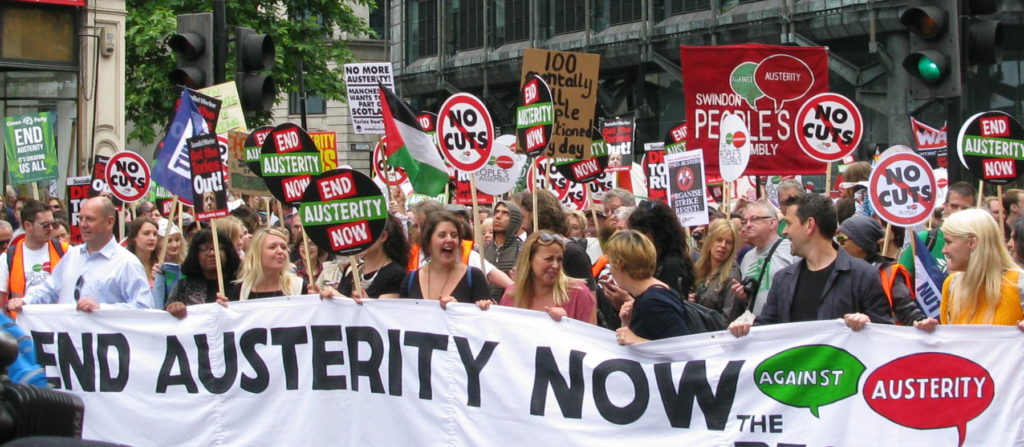London event: Austerity is working – for the 1%
Join us for an inspiring day of discussion, film & workshops in London.
The welfare state is under attack, workers’ rights are being eroded and poverty and inequality are on the rise. This is not a new crisis. The austerity measures now being imposed in the UK and Europe have been replicated around the world for decades. Time and again, debt crises created by casino banks have been paid for through austerity measures which have fallen on the poorest in society. The global history of austerity shows us how it has been used to create an economy that is built for the benefit of the 1%.
Wherever austerity has been tried people have responded with inspiring resistance and new ways to create a fairer, more equal and more democratic economy. Join us for a day of discussion, film and practical workshops on the impact of the economic crisis and austerity – and resistance across the world. Find out what you can do to build the global fight back.
Lunch will be provided. We will ask for a small donation. The event is organised by People & Planet, War on Want, Jubilee Debt Campaign Register through the War on Want website.
Speakers include:
- Emma Avilés, PACD (Citizen’s Debt Audit Platform), Spain
- Alfamir Castillo, President, Women Sugar Cane Cutters Committee, Colombia
- Andy Greene, Disabled People Against Cuts
- Dr Adam Hanieh, Political Economist, Middle East & North Africa, SOAS
Organised by People & Planet, Jubilee Debt Campaign, PCS, Trade Justice Movement, War on Want and World Development Movement.



I won’t be able to make this, but I hope it goes well. It’s important to think a bit more critically about whether austerity is ‘working’ than the simplistic appeal to total GDP to which much of the mainstream left defaults. There’s clearly an attempt at restructuring the economy, lowering wages and conditions, privatising services and so on, that hope to restore profits longer term, but which is conflicting with the shorter term aim of restoring growth. In many ways I think this expresses a fundamental problem with accumulation today, which we need to properly understand and exploit.
(As an aside, though, can we please not use the term “the 1%”, can we not just talk about class, and can we get past the idea that “casino banks” were to blame, the crisis was far more fundamental, though finance (not just banks) was the proximate cause.)